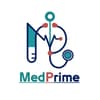Podcast
Questions and Answers
Which of the following is NOT a parenteral anticoagulant?
Which of the following is NOT a parenteral anticoagulant?
Which anticoagulant drug acts by inhibiting vitamin K epoxide reductase?
Which anticoagulant drug acts by inhibiting vitamin K epoxide reductase?
What is the primary mechanism of action of heparin?
What is the primary mechanism of action of heparin?
Which anticoagulant is monitored using the activated partial thromboplastin time (APTT)?
Which anticoagulant is monitored using the activated partial thromboplastin time (APTT)?
Which of the following is a potential adverse effect of both heparin and warfarin?
Which of the following is a potential adverse effect of both heparin and warfarin?
Which drug is used to reverse the anticoagulant effects of heparin?
Which drug is used to reverse the anticoagulant effects of heparin?
Which of the following is an oral direct thrombin inhibitor?
Which of the following is an oral direct thrombin inhibitor?
Which anticoagulant is known to have a delayed onset of action?
Which anticoagulant is known to have a delayed onset of action?
Which of the following drugs can potentiate the anticoagulant effect of warfarin?
Which of the following drugs can potentiate the anticoagulant effect of warfarin?
Which of the following is NOT an indication for anticoagulant therapy?
Which of the following is NOT an indication for anticoagulant therapy?
A patient on warfarin therapy develops a major bleeding episode. Which of the following interventions would be most appropriate to manage this situation?
A patient on warfarin therapy develops a major bleeding episode. Which of the following interventions would be most appropriate to manage this situation?
A patient with a history of heparin-induced thrombocytopenia requires anticoagulation for a surgical procedure. Which of the following drugs would be the most suitable alternative?
A patient with a history of heparin-induced thrombocytopenia requires anticoagulation for a surgical procedure. Which of the following drugs would be the most suitable alternative?
A patient is prescribed warfarin for the prevention of stroke in atrial fibrillation. Which of the following laboratory tests would be used to monitor the therapeutic effect of warfarin?
A patient is prescribed warfarin for the prevention of stroke in atrial fibrillation. Which of the following laboratory tests would be used to monitor the therapeutic effect of warfarin?
Which of the following statements best describes the advantages of newer oral anticoagulants (e.g., dabigatran, rivaroxaban) over warfarin?
Which of the following statements best describes the advantages of newer oral anticoagulants (e.g., dabigatran, rivaroxaban) over warfarin?
A pregnant woman with a mechanical heart valve requires anticoagulation throughout her pregnancy. Which of the following regimens is the most appropriate?
A pregnant woman with a mechanical heart valve requires anticoagulation throughout her pregnancy. Which of the following regimens is the most appropriate?
Which of the following is a potential consequence of abruptly discontinuing warfarin therapy?
Which of the following is a potential consequence of abruptly discontinuing warfarin therapy?
A patient on warfarin therapy is started on a course of antibiotics for a bacterial infection. What effect might this have on the patient's INR?
A patient on warfarin therapy is started on a course of antibiotics for a bacterial infection. What effect might this have on the patient's INR?
Which of the following statements about low-molecular-weight heparin (LMWH) is FALSE?
Which of the following statements about low-molecular-weight heparin (LMWH) is FALSE?
A patient with a history of peptic ulcer disease requires anticoagulation. Which of the following drugs would be the least suitable choice?
A patient with a history of peptic ulcer disease requires anticoagulation. Which of the following drugs would be the least suitable choice?
Which of the following is NOT a contraindication to anticoagulant therapy?
Which of the following is NOT a contraindication to anticoagulant therapy?
Which of the following statements about the coagulation system is TRUE?
Which of the following statements about the coagulation system is TRUE?
A patient is started on heparin therapy and develops thrombocytopenia. What is the most likely cause of this adverse effect?
A patient is started on heparin therapy and develops thrombocytopenia. What is the most likely cause of this adverse effect?
Which of the following is a characteristic of bivalirudin?
Which of the following is a characteristic of bivalirudin?
A patient with a prosthetic heart valve is planning a pregnancy. Which of the following statements regarding anticoagulation during pregnancy is most accurate?
A patient with a prosthetic heart valve is planning a pregnancy. Which of the following statements regarding anticoagulation during pregnancy is most accurate?
Which of the following drugs can decrease the anticoagulant effect of warfarin by inducing its metabolism?
Which of the following drugs can decrease the anticoagulant effect of warfarin by inducing its metabolism?
Which of the following is NOT a parenteral anticoagulant?
Which of the following is NOT a parenteral anticoagulant?
Which anticoagulant drug acts by inhibiting vitamin K epoxide reductase?
Which anticoagulant drug acts by inhibiting vitamin K epoxide reductase?
What is the primary mechanism of action of heparin?
What is the primary mechanism of action of heparin?
Which anticoagulant is monitored using the activated partial thromboplastin time (APTT)?
Which anticoagulant is monitored using the activated partial thromboplastin time (APTT)?
Which of the following is a potential adverse effect of both heparin and warfarin?
Which of the following is a potential adverse effect of both heparin and warfarin?
Which drug is used to reverse the anticoagulant effects of heparin?
Which drug is used to reverse the anticoagulant effects of heparin?
Which of the following is an oral direct thrombin inhibitor?
Which of the following is an oral direct thrombin inhibitor?
Which anticoagulant is known to have a delayed onset of action?
Which anticoagulant is known to have a delayed onset of action?
Which of the following drugs can potentiate the anticoagulant effect of warfarin?
Which of the following drugs can potentiate the anticoagulant effect of warfarin?
Which of the following is NOT an indication for anticoagulant therapy?
Which of the following is NOT an indication for anticoagulant therapy?
A patient on warfarin therapy develops a major bleeding episode. Which of the following interventions would be most appropriate to manage this situation?
A patient on warfarin therapy develops a major bleeding episode. Which of the following interventions would be most appropriate to manage this situation?
A patient with a history of heparin-induced thrombocytopenia requires anticoagulation for a surgical procedure. Which of the following drugs would be the most suitable alternative?
A patient with a history of heparin-induced thrombocytopenia requires anticoagulation for a surgical procedure. Which of the following drugs would be the most suitable alternative?
A patient is prescribed warfarin for the prevention of stroke in atrial fibrillation. Which of the following laboratory tests would be used to monitor the therapeutic effect of warfarin?
A patient is prescribed warfarin for the prevention of stroke in atrial fibrillation. Which of the following laboratory tests would be used to monitor the therapeutic effect of warfarin?
Which of the following statements best describes the advantages of newer oral anticoagulants (e.g., dabigatran, rivaroxaban) over warfarin?
Which of the following statements best describes the advantages of newer oral anticoagulants (e.g., dabigatran, rivaroxaban) over warfarin?
A pregnant woman with a mechanical heart valve requires anticoagulation throughout her pregnancy. Which of the following regimens is the most appropriate?
A pregnant woman with a mechanical heart valve requires anticoagulation throughout her pregnancy. Which of the following regimens is the most appropriate?
Which of the following is a potential consequence of abruptly discontinuing warfarin therapy?
Which of the following is a potential consequence of abruptly discontinuing warfarin therapy?
A patient on warfarin therapy is started on a course of antibiotics for a bacterial infection. What effect might this have on the patient's INR?
A patient on warfarin therapy is started on a course of antibiotics for a bacterial infection. What effect might this have on the patient's INR?
Which of the following statements about low-molecular-weight heparin (LMWH) is FALSE?
Which of the following statements about low-molecular-weight heparin (LMWH) is FALSE?
A patient with a history of peptic ulcer disease requires anticoagulation. Which of the following drugs would be the least suitable choice?
A patient with a history of peptic ulcer disease requires anticoagulation. Which of the following drugs would be the least suitable choice?
Which of the following is NOT a contraindication to anticoagulant therapy?
Which of the following is NOT a contraindication to anticoagulant therapy?
Which of the following statements about the coagulation system is TRUE?
Which of the following statements about the coagulation system is TRUE?
A patient is started on heparin therapy and develops thrombocytopenia. What is the most likely cause of this adverse effect?
A patient is started on heparin therapy and develops thrombocytopenia. What is the most likely cause of this adverse effect?
Which of the following is a characteristic of bivalirudin?
Which of the following is a characteristic of bivalirudin?
A patient with a prosthetic heart valve is planning a pregnancy. Which of the following statements regarding anticoagulation during pregnancy is most accurate?
A patient with a prosthetic heart valve is planning a pregnancy. Which of the following statements regarding anticoagulation during pregnancy is most accurate?
Which of the following drugs can decrease the anticoagulant effect of warfarin by inducing its metabolism?
Which of the following drugs can decrease the anticoagulant effect of warfarin by inducing its metabolism?
Flashcards are hidden until you start studying
Study Notes
Anticoagulant Drugs Overview
- Anticoagulants are medications that help prevent blood clots.
- Common genera of anticoagulants include parenteral agents (e.g., heparin), vitamin K antagonists (e.g., warfarin), and direct thrombin inhibitors (e.g., dabigatran).
Common Anticoagulants
- Heparin: A parenteral anticoagulant that activates antithrombin III, inhibiting thrombin and factor Xa.
- Warfarin: An oral anticoagulant that inhibits vitamin K epoxide reductase, affecting factors II, VII, IX, and X.
- Dabigatran: An oral direct thrombin inhibitor with a rapid onset of action and no need for routine monitoring.
- Rivaroxaban: An oral direct factor Xa inhibitor.
Monitoring and Assessments
- Activated Partial Thromboplastin Time (APTT): Used to monitor the anticoagulant effect of heparin.
- Prothrombin Time (PT) and International Normalized Ratio (INR): Used to monitor warfarin therapy.
Adverse Effects
- Bleeding: A common adverse effect associated with both warfarin and heparin.
- Thrombocytopenia: Possible reaction to heparin, often immune-mediated.
- Osteoporosis: Potential long-term side effect of both warfarin and heparin.
Reversal Agents
- Protamine Sulfate: Used to reverse the effects of heparin.
- Vitamin K: Administered to reverse warfarin effects during major bleeding episodes.
Clinical Considerations
- In pregnancy, heparin is preferred over warfarin due to teratogenic risks.
- Newer oral anticoagulants like dabigatran and rivaroxaban generally require less monitoring and have fewer drug interactions compared to warfarin.
Contraindications and Precautions
- Hemophilia, recent hemorrhagic stroke, and active peptic ulcer disease: All contraindications for anticoagulant therapy.
- Atrial fibrillation: Indication for anticoagulant therapy to prevent stroke.
Important Characteristics
- Low-molecular-weight heparin (LMWH): Has a longer half-life and lower risk of thrombocytopenia compared to unfractionated heparin and does not usually require frequent monitoring.
- Bivalirudin: A reversible direct thrombin inhibitor characterized by a short duration of action.
Drug Interactions
- Drugs like rifampin can decrease warfarin's effectiveness by inducing its metabolism.
- Antibiotics may increase the INR in patients on warfarin due to interactions.
Summary of Indications
- Anticoagulants are indicated for the prevention of venous thrombosis, treatment of deep vein thrombosis, and management of atrial fibrillation.
- They are not appropriate for patients with conditions such as hemophilia.
These notes encapsulate critical knowledge on anticoagulants, offering essential insights into their mechanisms, monitoring, adverse effects, and clinical applications.
Anticoagulant Drugs Overview
- Anticoagulants are medications that help prevent blood clots.
- Common genera of anticoagulants include parenteral agents (e.g., heparin), vitamin K antagonists (e.g., warfarin), and direct thrombin inhibitors (e.g., dabigatran).
Common Anticoagulants
- Heparin: A parenteral anticoagulant that activates antithrombin III, inhibiting thrombin and factor Xa.
- Warfarin: An oral anticoagulant that inhibits vitamin K epoxide reductase, affecting factors II, VII, IX, and X.
- Dabigatran: An oral direct thrombin inhibitor with a rapid onset of action and no need for routine monitoring.
- Rivaroxaban: An oral direct factor Xa inhibitor.
Monitoring and Assessments
- Activated Partial Thromboplastin Time (APTT): Used to monitor the anticoagulant effect of heparin.
- Prothrombin Time (PT) and International Normalized Ratio (INR): Used to monitor warfarin therapy.
Adverse Effects
- Bleeding: A common adverse effect associated with both warfarin and heparin.
- Thrombocytopenia: Possible reaction to heparin, often immune-mediated.
- Osteoporosis: Potential long-term side effect of both warfarin and heparin.
Reversal Agents
- Protamine Sulfate: Used to reverse the effects of heparin.
- Vitamin K: Administered to reverse warfarin effects during major bleeding episodes.
Clinical Considerations
- In pregnancy, heparin is preferred over warfarin due to teratogenic risks.
- Newer oral anticoagulants like dabigatran and rivaroxaban generally require less monitoring and have fewer drug interactions compared to warfarin.
Contraindications and Precautions
- Hemophilia, recent hemorrhagic stroke, and active peptic ulcer disease: All contraindications for anticoagulant therapy.
- Atrial fibrillation: Indication for anticoagulant therapy to prevent stroke.
Important Characteristics
- Low-molecular-weight heparin (LMWH): Has a longer half-life and lower risk of thrombocytopenia compared to unfractionated heparin and does not usually require frequent monitoring.
- Bivalirudin: A reversible direct thrombin inhibitor characterized by a short duration of action.
Drug Interactions
- Drugs like rifampin can decrease warfarin's effectiveness by inducing its metabolism.
- Antibiotics may increase the INR in patients on warfarin due to interactions.
Summary of Indications
- Anticoagulants are indicated for the prevention of venous thrombosis, treatment of deep vein thrombosis, and management of atrial fibrillation.
- They are not appropriate for patients with conditions such as hemophilia.
These notes encapsulate critical knowledge on anticoagulants, offering essential insights into their mechanisms, monitoring, adverse effects, and clinical applications.
Studying That Suits You
Use AI to generate personalized quizzes and flashcards to suit your learning preferences.




